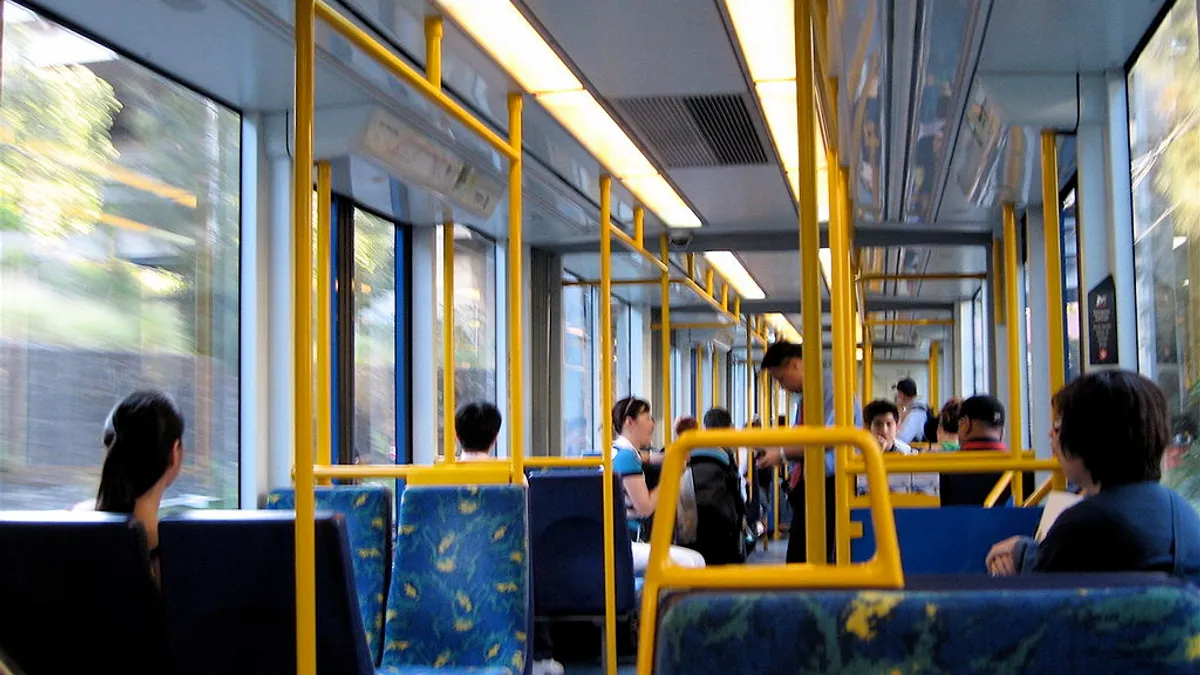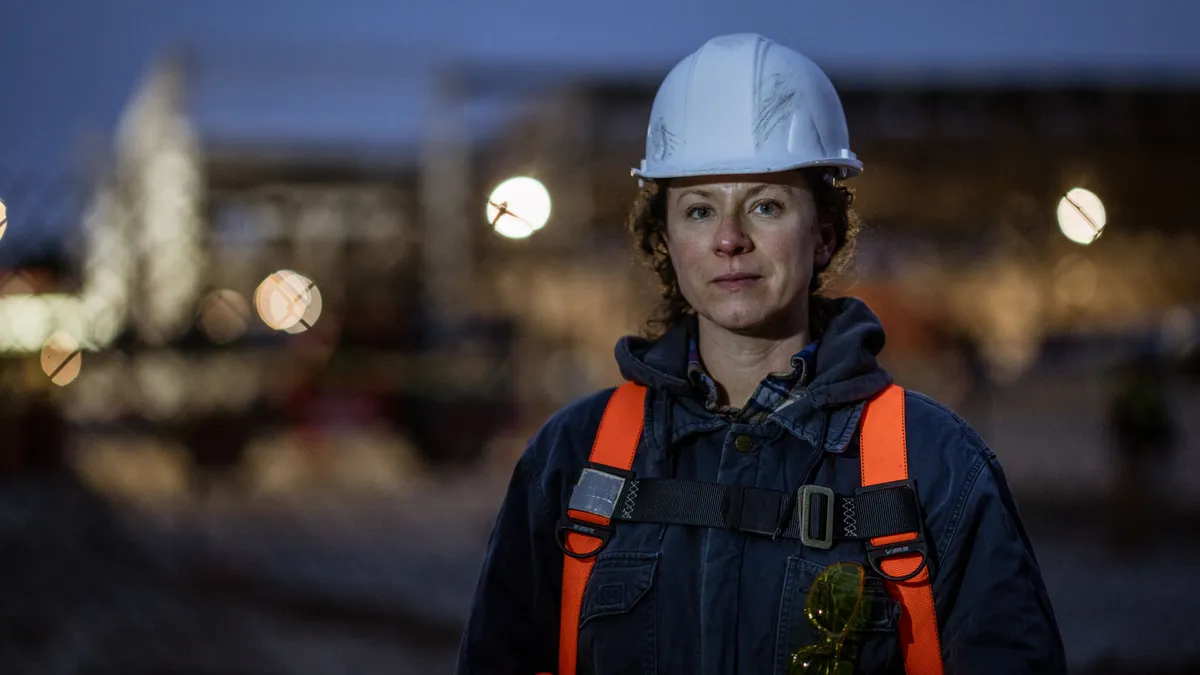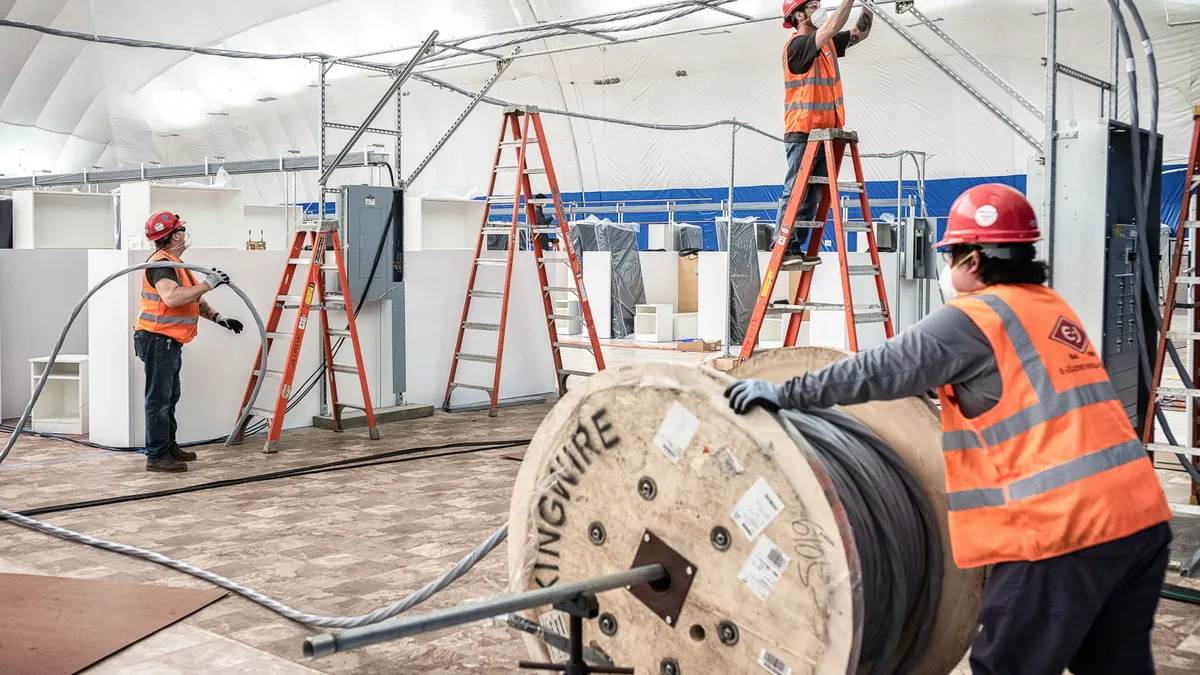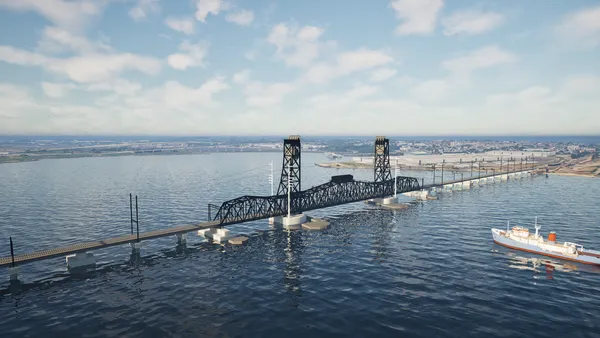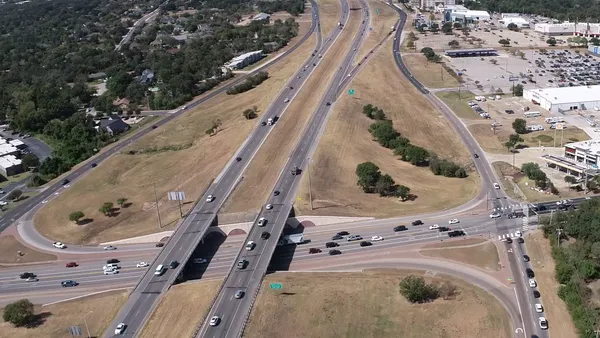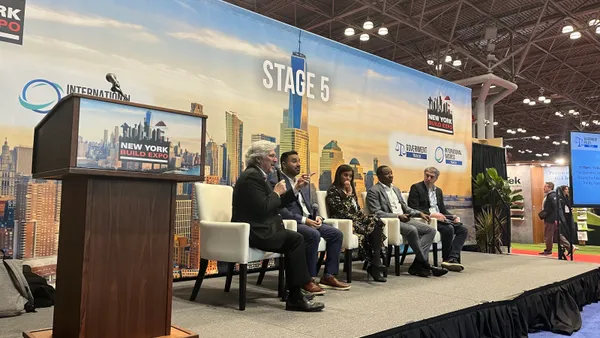Dive Brief:
- Rising construction costs could force the Central Puget Sound Regional Transit Authority (Sound Transit) to execute contracts for a $3.2 billion light rail extension this summer, even before the authority has secured a $1.1 billion federal grant, according to The Seattle Times.
- In summer 2017, land purchases, system design features and general building boom-related price increases pushed Sound Transit's earlier project estimate of $2.4 billion to $2.9 billion. Engineering adjustments reduced the overall cost by $200 million, but since last year, the cost of rail cars, debt-finance costs and a $170 million contingency mandated by the Federal Transportation Agency as a condition of the grant drove the price tag of the 8-mile Lynwood Link to its current level.
- A threat by the administration of President Donald Trump to cut off funding to regional projects like the Lynwood Link has held up FTA grant applications, and the process is still subject to political winds. So Sound Transit could be responsible for full financing if the grant falls through after construction begins. However, if the authority doesn’t finance the project and contracts have been executed, significant delays could trigger cancellation payments to contractors and result in other costs related to stalled construction. Sound Transit officials said they have built extra time into the schedule and that the odds of the Lynwood Link being operational in 2024 as planned are 80%.
Dive Insight:
Included in the $1.3 trillion spending bill signed by President Trump earlier this year is $13.5 billion in FTA funding, which is more than $1 billion above its authorized level, according to Progressive Railroading.
The Lynwood Link, as well as almost $7 billion of other planned Sound Transit projects, is part of the voter-approved $54 billion Sound Transit 3 initiative, which aims to connect the Seattle suburbs to the city via light rail. At the time, critics of the plan said it included projects scheduled for completion too far into the future and that it would be hard to predict costs with much accuracy.
In order to mitigate price increases or other unknown market conditions, some transit agencies have turned to public-private partnerships (P3s) as a way to transfer the risk of construction, financing, design, operations and maintenance to the private sector. Maryland turned over its 16.2-mile, $5.6 billion Purple Line light rail project, which will interconnect Washington, D.C. area suburbs, to Purple Line Transit Partners, which includes industry construction experts Fluor Corp., Meridiam and Star America Infrastructure Partners. When the deal was signed in 2016, the Maryland Department of Transportation estimated that handing over the project to Purple Line Transit Partners rather than doing the work itself would save state taxpayers $550 million over the life of the 36-year contract.


